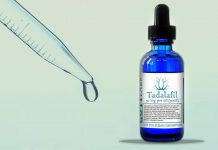People who are at risk of catching HIV today can take Truvada, a drug that prevents the transmission of the virus. The drug is taken as pre-exposure prophylaxis (PrEP) as well as post-exposure prophylaxis (PEP), meaning it can be taken before and after sex to prevent HIV transmission.
Developed by Gilead Sciences, Truvada is a combination of antiretroviral drugs emtricitabine, tenofovir, and disoproxil fumarate. According to the CDC, for people who already have HIV, the drug, when taken regularly, makes it impossible to transmit the virus during sex.
A new study has found that Truvada could help reduce “HIV anxiety,” a common mental health issue experienced especially by gay and bisexual men. It can greatly affect their emotional well-being and create a barrier to HIV testing and treatment.
Researchers of the study wrote, “For many men, fear of HIV transmission led to anxiety about sex with other men, even in situations where transmission was impossible.”
The authors found that half of the study respondents were concerned about whether their sexual encounters were “safe.” They thought about catching HIV before sex. They also found that more than 75 percent of study respondents, who were HIV-negative, thought about contracting HIV before and during sex.
The study found that taking HIV PrEP medication Truvada “was independently associated with lower levels of HIV anxiety,” suggesting that the drug “could be promoted as part of demand creation initiatives to increase PrEP uptake,” which is a key goal of the American government to the HIV epidemic by 2030.
Although the study has shown that PrEP could help reduce HIV anxiety, the uneasiness among many people did not dissipate. Dr. Perry Halkitis, dean of the Rutgers University School of Public Health, told NBC News, “When you are bombarded your adult life with HIV and seeing death, I don’t care how much we advance biomedical technologies — that emotional reaction to the disease is still going to be the same. I unfortunately think that the way we deal with HIV in this country still to this day is very rooted in the responses from AIDS.”























